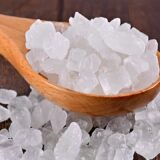Top 10 Health Benefits of Eating Mango Fruit
Mango is commonly known as “aam” also known as “The King of Fruit” it is one of the most delicious, nourishing, and revitalizing tropical fruits.
It has been an important herb in the Ayurvedic and indigenous medical systems for over 4000 years. According to Ayurveda, different parts of the mango tree’s varied medicinal properties are attributed to it. Besides many health benefits, it is mostly enjoyed the fruit due to the virtue of its divine taste.
There are about 1000 varieties of mangoes found in India, most of them ripen in summer, whereas a number of giving a double crop. The mango fruit takes about four to five months to ripen as soon as it flowers, they are in varies from shape, size, color, and even the tastes are distinct.
Mango benefits and its properties
1. High fiber content: Mango can be beneficial for people with Diabetes, as its fiber content helps control blood glucose, in addition to reducing blood cholesterol and producing a satiety effect, which helps combat overweight.
2. Contains potassium: It has high levels of potassium, which is necessary for people suffering from hypertension and helps to eliminate fluids from the body.
3. It has vitamin C: It also has vitamin C and beta-carotene that promote the absorption of iron in the body. The richness of vitamin C makes it a good source of antioxidants and also reduces the risk of degenerative diseases.
4. Provides vitamin A: This vitamin helps to maintain healthy bronchial tubes and stomach, in addition to improving the immune system’s ability to respond to viruses and bacteria
5. Helps the nervous system and the skin: Contains B vitamins, including B3 that helps the system nervous and like the skin, or the B6 important for the synthesis of amino acids and the metabolism of fats.
Nutritional value (quantity 100 g)
- Calories: 60
- Total fat: 0.4 g
- Cholesterol: 0 mg
- Sodium : 1 mg
- Potassium: 168 mg
- Carbohydrates: 15 g
- Proteins: 0.8 g
Most Popular Varieties of Mango in India
- Alphonso
- Amrapali
- Badami
- Baneshan
- Banganapalli
- Chok Anan
- Chausa
- Dasheri
- Fernandina
- Fazli
- Jauhari
- Kishen Bhog
- Kesar
- Kalepad
- Lakshmanbhog
- Langra
- Mallika
- Mulgoa
- Malgova
- Mankurad
- Neelum
- Rajapuri
- Safeda
- Sammar Bahisht,
- Suvernarekha
- Totapuri
Traditional Use Of Mangoes
- In Hinduism, the perfectly ripe mango is often held by Lord Ganesha as a symbol of attainment, regarding the devotee’s potential perfection.
- Mango leaves are used to decorate archways and doors in Indian houses and during weddings and celebrations like Ganesh Chaturthi.
- Mango blossoms are also used in the worship of the goddess Saraswati.
- In Tamilnadu, Mango Banana, and jack fruit, is considered as the Three royal fruits (Mukkani)
- In Australia, where mangoes are considered to be a symbol of summer, the first tray of mangoes of the season is traditionally sold at an auction for charity.
Health Benefits Of Eating Mango Fruit
There are many health benefits of eating mangoes, starting from prevention to serious illnesses such as cancer. Besides this, mangoes can also help in weight loss, to improve the immune system as well as for several beauty treatments.
1. Help in Weight gain
Eating mangoes is very useful for people who want to gain weight. Starch-contain in raw mangoes is converted into sugar as the mango fruit ripens ripe. Every 100 grams of mango contains about 75 calories. Sweet mangoes when consumed with milk can be very useful in weight gain.
2. Reduce sugar levels
Mango leaves is the best insulin to reduce sugar levels in the blood so it is helpful for diabetes patient. The glycemic index in mango is low between 41-60. Therefore do not affect more on increasing levels of sugar in the blood. Mango leaves can be used by Boiling a few mango leaves in water keep it to saturate at night, filter water, and consumed in the morning best home remedy for diabetes.
3. Helps in anemia
Mangoes consist of vitamin C and a good amount of iron content which is very beneficial for pregnant women and people suffering from anemia due to iron content. Women usually become weak after menopause; they should take the mangoes and other fruits rich in iron.
4. Improve Eye vision
Eating mangoes regularly prevents night blindness remove refractive error eyes, softening of the cornea, itching, and burning eyes. Only one cup of sliced Mango is enough as it consists of 25 percent of the required value of vitamin A which is best for healthy eye vision.
5. Increase memory power
Mangoes contain acid glutamine, which is good for improving memory it keeps memory cells active. Mangoes are useful for children, who lack concentration in studies.
6. Prevent Cancer
A mango contains properties, such as astragalin, Gallic acid, isoquercitrin, quercetin, fisetin, methyl gallate, and a good quantity of enzymes that have the ability to prevent cancer. Mango consists of high soluble dietary fiber called pectin which prevents cancer. A cup of mango slices which is about 165 grams contain 76 percent of vitamin C, lots of fiber which is a powerful antioxidant that helps to protect cells from free radical damage and reduces cancer.
7. Benefits for skincare
Mangoes are also useful for people who suffer from acne. Mangoes are very effective as they relieving clogged pores of the skin. It can be used by removing mango pulp, apply on the skin for about 10-15 minutes before washing. Eat mangoes regularly may make skin fair of complexion shiny and soft.
8. Improve sexual strength
Among many health benefits, eating mangoes can also boost sexual strength as well as helps to enhance sexual drive. Mangoes fruits hold Vitamin E in abundance that can help to regulate the sex hormones and increase sex drive. So men or women with low libido should eat mangoes regularly.
9. Improve digestion
Mango contains a large amount of fiber useful to combat acidity and poor digestion due to an enzyme found in mangoes that helps to break down proteins and increase digestion power. Eating mangoes regularly can be useful for preventing constipation.
10. Prevent heat stroke
Green mangoes have a rich source of steam and pectin. Its juice can be taken with cumin called (jeera) sugar, rock salt; it is an excellent remedy for heat exhaustion in summer and heat stroke.
References:
- https://www.ncbi.nlm.nih.gov/pmc/articles/PMC3249901/
- https://en.wikipedia.org/wiki/List_of_mango_cultivars

























